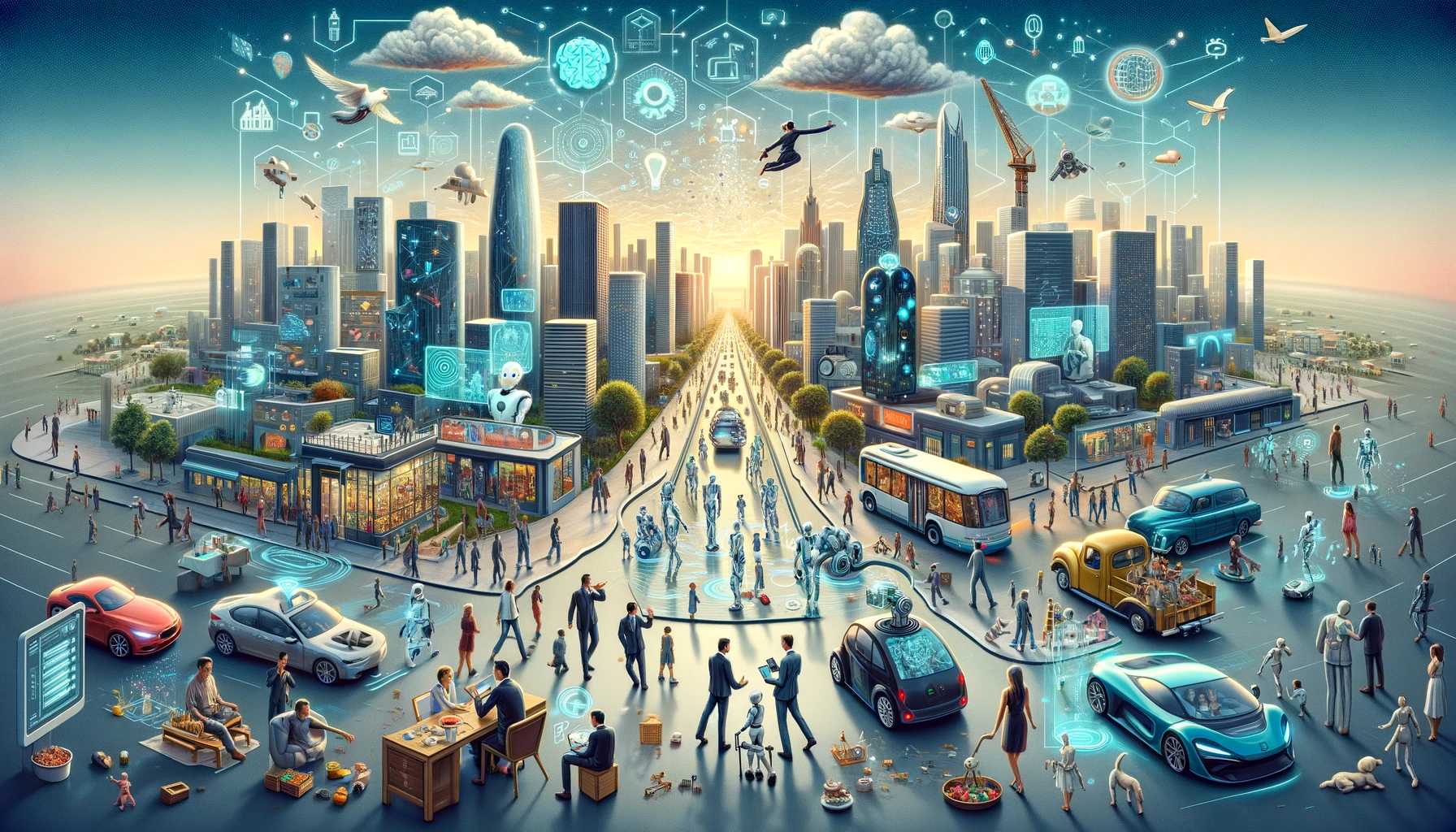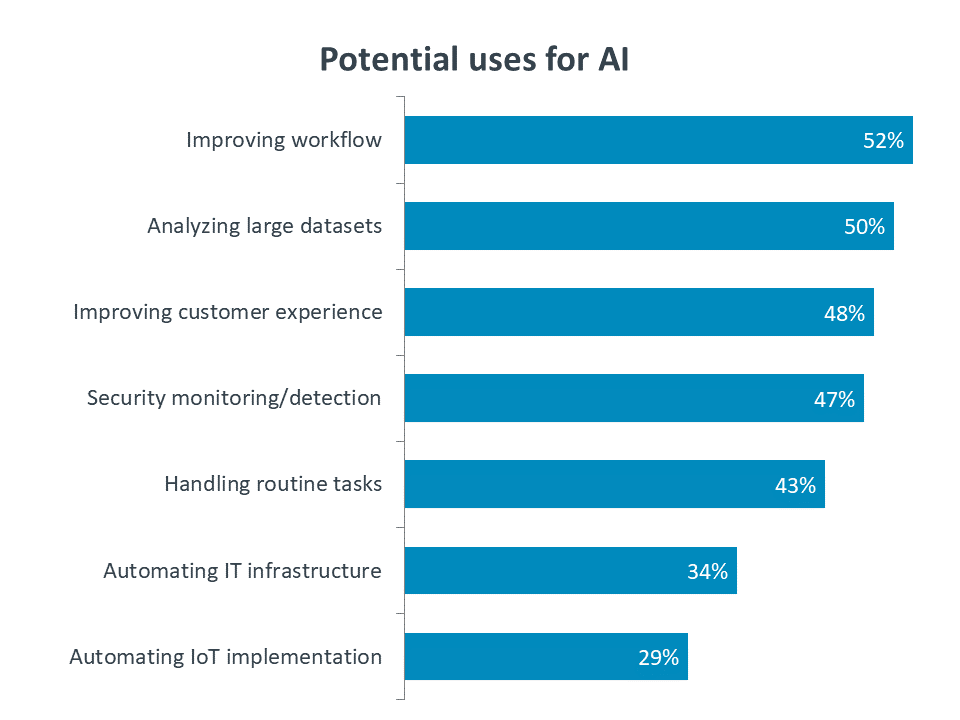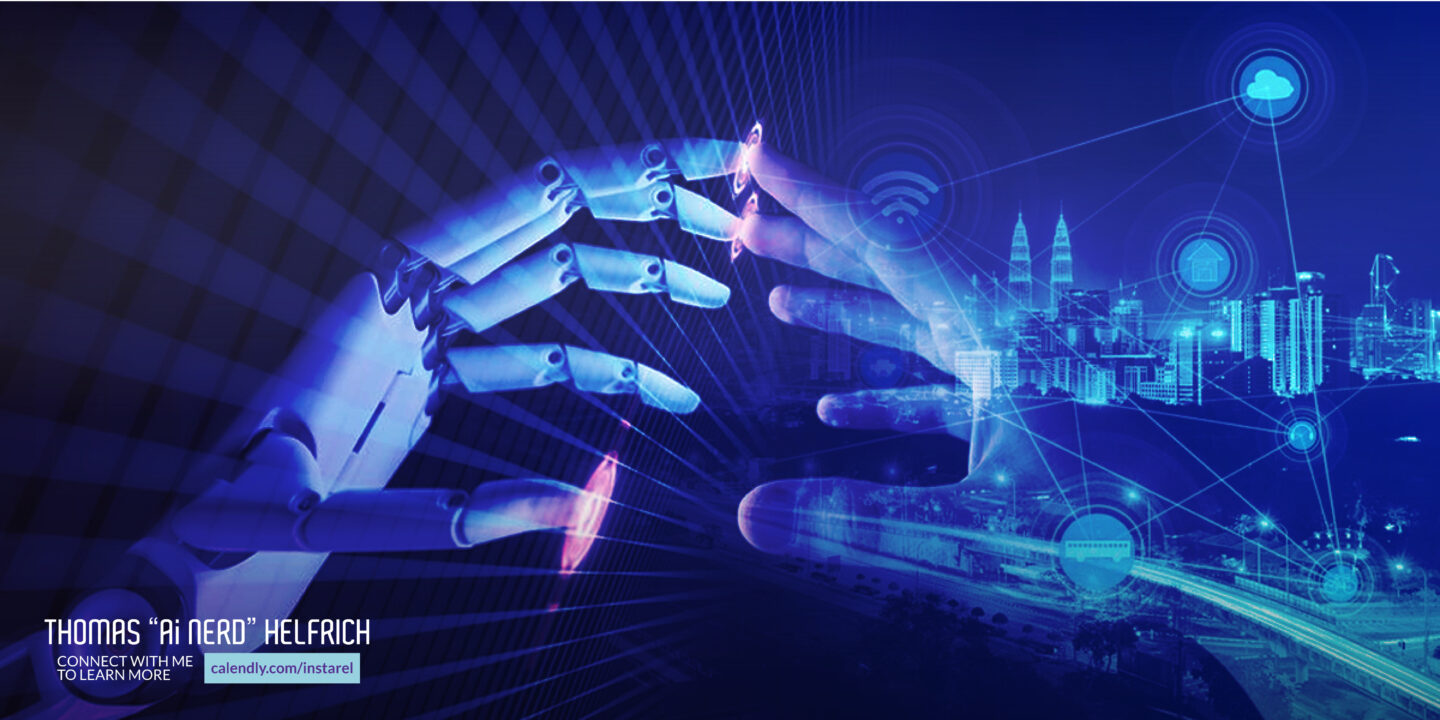Artificial intelligence (AI) is rapidly transforming various aspects of our lives, from healthcare and education to transportation and entertainment. Its potential to revolutionize society is undeniable, but so too are the concerns surrounding its ethical implications and potential societal impact.
This analysis delves into the multifaceted nature of AI’s influence on society, exploring its benefits, challenges, and the critical need for responsible development and governance.
The advent of AI has sparked widespread debate about its potential benefits and risks. While AI promises to solve complex societal problems and improve our quality of life, it also raises concerns about job displacement, algorithmic bias, and the erosion of privacy.
This analysis aims to provide a balanced perspective on the impact of AI on society, examining both its transformative potential and its ethical challenges.
The Potential Benefits of AI for Society

Artificial intelligence (AI) has the potential to revolutionize various aspects of our lives, bringing about significant advancements and positive impacts across numerous sectors. From improving healthcare outcomes to enhancing education systems and optimizing transportation networks, AI is poised to address some of the world’s most pressing challenges.
AI’s Impact on Healthcare
AI has the potential to revolutionize healthcare by improving diagnosis, treatment, and patient care. AI-powered tools can analyze vast amounts of medical data to identify patterns and predict potential health risks. This can lead to earlier and more accurate diagnoses, allowing for timely interventions and improved treatment outcomes.
AI can also assist in drug discovery and development, accelerating the process of finding new therapies for diseases. Furthermore, AI-powered chatbots and virtual assistants can provide patients with personalized support and guidance, enhancing their overall healthcare experience.
AI’s Role in Education
AI can personalize learning experiences for students, making education more engaging and effective. AI-powered tutoring systems can adapt to individual learning styles and provide customized instruction, ensuring that each student receives the support they need to succeed. AI can also automate administrative tasks, freeing up teachers to focus on providing more personalized attention to their students.
Additionally, AI can analyze student data to identify areas where students are struggling and provide targeted interventions to help them improve.
AI’s Contribution to Transportation
AI is transforming the transportation industry by improving safety, efficiency, and sustainability. Self-driving cars, powered by AI, have the potential to reduce traffic accidents and congestion, leading to safer roads and more efficient transportation systems. AI can also optimize traffic flow, reducing travel times and improving overall mobility.
Furthermore, AI-powered logistics systems can streamline delivery routes, reducing fuel consumption and emissions, contributing to a more sustainable transportation sector.
AI’s Potential in Solving Global Challenges
AI can play a crucial role in addressing global challenges such as climate change and poverty. AI-powered systems can monitor and analyze environmental data to identify patterns and predict potential risks associated with climate change. This information can be used to develop more effective strategies for mitigating climate change and adapting to its impacts.
AI can also help in optimizing energy consumption and resource management, reducing our reliance on fossil fuels and promoting sustainable practices. In the fight against poverty, AI can assist in developing targeted interventions and programs that address the specific needs of vulnerable communities.
AI-powered tools can help in identifying and connecting individuals with relevant resources and opportunities, empowering them to improve their lives.
Examples of AI’s Positive Impact
There are numerous examples of how AI is already improving the quality of life for individuals and communities. For instance, AI-powered medical imaging systems are helping doctors to detect diseases earlier and with greater accuracy. AI-powered chatbots are providing mental health support to individuals who may not have access to traditional therapy.
AI-powered agricultural systems are helping farmers to optimize crop yields and reduce water consumption. These are just a few examples of how AI is making a positive difference in the world.
AI’s Impact on Employment and the Workforce

The rise of artificial intelligence (AI) has sparked widespread discussions about its potential impact on the future of work. While AI offers significant benefits to society, its automation capabilities raise concerns about job displacement and the need for workforce adaptation.
Job Displacement and Automation
AI’s ability to automate tasks previously performed by humans has the potential to displace workers in various sectors. This displacement is driven by AI’s capacity to perform tasks more efficiently, accurately, and cost-effectively than humans.
- Manufacturing:Robots powered by AI are increasingly used in manufacturing, automating tasks like assembly, welding, and quality control. This has led to job losses in manufacturing sectors where repetitive and manual tasks are prevalent.
- Customer Service:AI-powered chatbots and virtual assistants are being deployed to handle customer inquiries and support, reducing the need for human customer service representatives.
- Transportation:Autonomous vehicles, powered by AI, are being developed and tested, potentially displacing truck drivers, taxi drivers, and other transportation workers in the future.
Ethical Considerations and Bias in AI

The rapid advancement of AI presents both incredible opportunities and significant ethical challenges. As AI systems become increasingly sophisticated and integrated into our lives, it is crucial to address the potential risks associated with their development and deployment. Ethical considerations surrounding AI encompass a wide range of concerns, including privacy, discrimination, accountability, and the potential for unintended consequences.
Privacy Concerns
The use of AI often involves the collection and analysis of vast amounts of personal data. This raises concerns about individual privacy and the potential for misuse of this information. For example, facial recognition technology, widely used in surveillance systems and security applications, can be used to track individuals’ movements and identify them without their consent.
The potential for this technology to be used for mass surveillance or to violate individual privacy is a serious ethical concern.
Discrimination and Fairness in AI
AI systems are trained on data, and if that data reflects existing biases, the resulting AI system may perpetuate or even amplify those biases. This can lead to discriminatory outcomes in various domains, such as loan applications, hiring decisions, and criminal justice.
For instance, studies have shown that facial recognition systems can be less accurate in identifying individuals with darker skin tones, which can lead to discriminatory outcomes in law enforcement and security applications.
Accountability and Transparency in AI
As AI systems become more complex, it becomes increasingly difficult to understand how they arrive at their decisions. This lack of transparency raises concerns about accountability. If an AI system makes a mistake or causes harm, it can be difficult to determine who is responsible.
For example, if a self-driving car is involved in an accident, it may be unclear whether the fault lies with the car’s AI system, the human driver, or a combination of both.
Mitigating Bias and Ensuring Responsible AI Development
Addressing the ethical challenges of AI requires a multi-faceted approach. Here are some key steps to mitigate bias and ensure responsible AI development:
- Use diverse and representative datasets: To avoid biased outcomes, it is crucial to train AI systems on datasets that reflect the diversity of the population. This can help to reduce the risk of discrimination based on factors such as race, gender, or socioeconomic status.
- Develop transparent and explainable AI systems: Transparency and explainability are essential for building trust in AI systems. AI systems should be designed to provide clear explanations for their decisions, making it easier to understand how they work and identify potential biases.
- Establish ethical guidelines and regulations: Developing clear ethical guidelines and regulations for AI development and deployment can help to ensure that AI systems are used responsibly. These guidelines should address issues such as privacy, discrimination, accountability, and the potential for unintended consequences.
- Promote collaboration between researchers, policymakers, and industry: Addressing the ethical challenges of AI requires collaboration between researchers, policymakers, and industry. This collaboration can help to develop best practices, share knowledge, and ensure that AI is developed and deployed in a responsible and ethical manner.
The Role of Government and Regulation in AI

The rapid advancement of artificial intelligence (AI) has raised significant concerns about its potential impact on society. While AI offers numerous benefits, it also presents challenges that require careful consideration and proactive regulation. Governments and regulatory bodies play a crucial role in ensuring the responsible development and deployment of AI technologies.
The Need for Regulations
As AI systems become increasingly sophisticated and integrated into various aspects of our lives, the need for comprehensive regulations becomes increasingly apparent. Regulations can help mitigate risks, address ethical concerns, and promote responsible innovation.
- Safety and Security:AI systems can be vulnerable to security breaches and malicious attacks, which could have severe consequences. Regulations can establish standards for secure development and deployment, ensuring the robustness and resilience of AI systems.
- Transparency and Accountability:The decision-making processes of AI systems can be opaque, making it difficult to understand how they arrive at their conclusions. Regulations can mandate transparency in AI algorithms, allowing for better understanding and accountability.
- Bias and Discrimination:AI systems can inherit and amplify biases present in the data they are trained on. Regulations can address this by requiring developers to assess and mitigate bias in AI systems, promoting fairness and equity.
- Privacy and Data Protection:AI systems often rely on large datasets that may contain sensitive personal information. Regulations can establish safeguards for data privacy, ensuring the responsible collection, storage, and use of data.
Ethical Frameworks and Guidelines
Ethical frameworks and guidelines provide a moral compass for the development and use of AI. They address fundamental questions about the responsible use of AI, ensuring that its benefits are maximized while minimizing potential harm.
- Human-Centered Design:Ethical frameworks emphasize the importance of human-centered design principles, ensuring that AI systems are developed and deployed in ways that benefit humanity.
- Transparency and Explainability:Ethical guidelines promote transparency and explainability in AI systems, allowing users to understand how decisions are made and hold developers accountable.
- Fairness and Non-discrimination:Ethical considerations address the potential for bias and discrimination in AI systems, ensuring that they are developed and used in a fair and equitable manner.
- Privacy and Data Security:Ethical frameworks prioritize privacy and data security, ensuring that personal information is protected and used responsibly.
Balancing Innovation with Ethical Considerations
Balancing innovation with ethical considerations is a complex challenge. Regulations should strike a balance between promoting technological advancement and protecting societal values.
- Sandboxes and Experimental Environments:Governments can create regulatory sandboxes and experimental environments to test and evaluate new AI technologies in a controlled setting. This allows for innovation while mitigating risks.
- Adaptive Regulations:Regulations should be adaptive and flexible, recognizing that the AI landscape is constantly evolving. Regular review and updates are necessary to keep pace with technological advancements.
- Collaboration and Public Engagement:Governments, industry, and researchers should collaborate to develop and implement ethical AI guidelines. Public engagement is essential to ensure that regulations reflect societal values and concerns.
The Future of AI and Its Impact on Society

The future of AI is a complex and rapidly evolving landscape, filled with both potential benefits and risks. As AI technologies continue to advance, they will have a profound impact on various aspects of human society, ranging from the economy to healthcare, education, and even our understanding of what it means to be human.
AI-Powered Solutions for Complex Societal Problems
AI has the potential to address some of the most pressing challenges facing humanity.
- Climate Change:AI can be used to develop more efficient energy systems, optimize resource allocation, and predict and mitigate the effects of climate change. For example, AI-powered systems can analyze satellite data to monitor deforestation and track greenhouse gas emissions, enabling better environmental management.
- Healthcare:AI is already being used to improve medical diagnosis, personalize treatment plans, and accelerate drug discovery. AI-powered systems can analyze vast amounts of medical data to identify patterns and predict disease outcomes, leading to earlier detection and more effective interventions.
- Education:AI can personalize learning experiences, provide adaptive feedback, and automate administrative tasks. AI-powered tutors can adapt to individual learning styles and provide personalized instruction, while AI-driven systems can streamline administrative processes and free up teachers to focus on student engagement.
Outcome Summary

As AI continues to evolve at an unprecedented pace, it is crucial to engage in open and informed discussions about its impact on society. Balancing the transformative potential of AI with ethical considerations, responsible governance, and human-centered design is paramount.
By fostering collaboration between researchers, policymakers, and the public, we can ensure that AI serves as a force for good, empowering humanity to address global challenges and create a more equitable and sustainable future.
FAQ Summary
What are some real-world examples of AI’s positive impact on society?
AI has already made significant contributions in areas such as healthcare, where it assists in diagnosing diseases, personalizing treatment plans, and developing new drugs. In education, AI-powered tools are used to personalize learning experiences and provide individualized support to students.
Additionally, AI is playing a role in combating climate change by optimizing energy consumption and developing sustainable solutions.
How can we mitigate bias in AI algorithms?
Addressing bias in AI requires a multi-faceted approach. This includes ensuring diverse representation in training data, developing algorithms that are transparent and explainable, and establishing ethical guidelines for AI development and deployment. Regular audits and independent oversight are also crucial to identify and mitigate potential biases.
What role can governments play in regulating AI?
Governments have a crucial role to play in establishing ethical frameworks and regulations for AI development and deployment. This includes setting standards for data privacy, algorithmic transparency, and accountability. Governments should also invest in research and development to promote responsible AI innovation.
